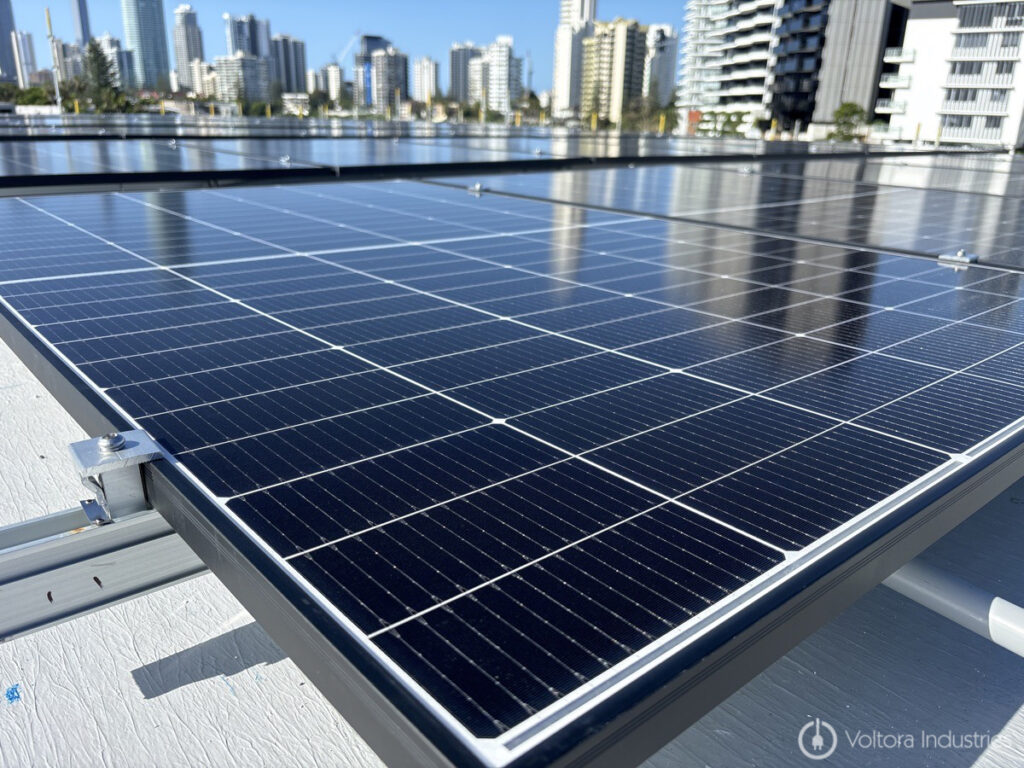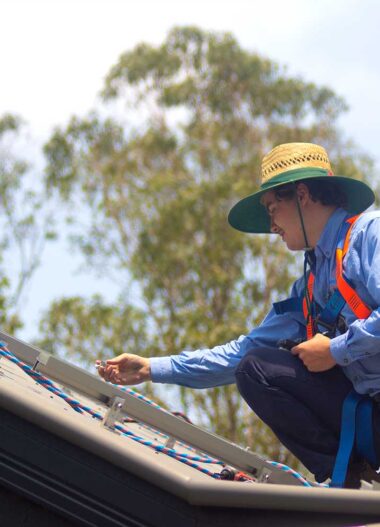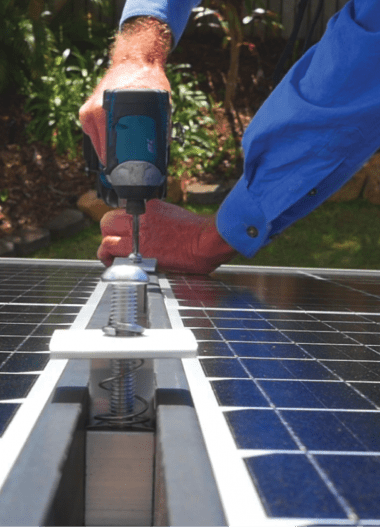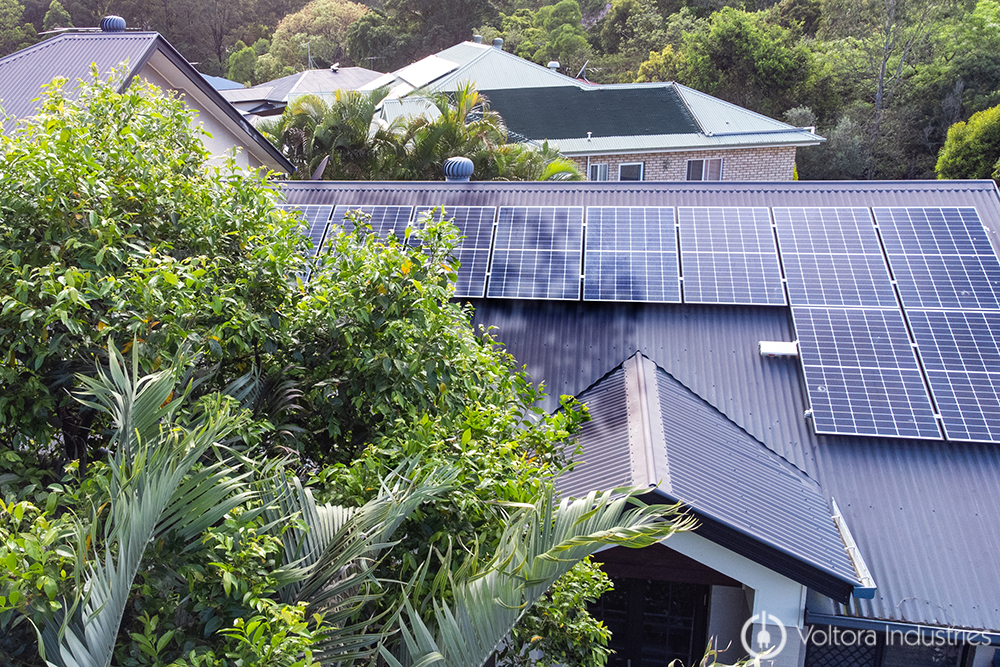
At Voltora, we get asked a lot about how solar power goes in the colder Brisbane winter months. Obviously, in the blazing long days of summer, solar panels really pull their weight. Winter brings a different set of conditions – shorter days, colder temperatures. Can a solar power system still operate efficiently?
We’ll cut straight to the chase – the answer is yes. In a Brisbane winter, your solar power setup will still continue to generate a large amount of electricity and keep your energy bills down.
Let’s take a look at some of the facts why.
Winter in Brisbane: Balmy!
We get some pretty cracking days in winter. There’s a definite chill in the air that makes getting up in the morning hard, but the skies are clear and there is plenty of sunshine.
Let’s look at July, which is bang in the middle of winter. According to the Bureau of Meteorology, Brisbane gets an average of around 220 to 230 sunshine hours in this month. That puts us on a mean average of 7.4 hours a day.
That’s not far off the average hours of sunshine we get in Spring.
The days are shorter in winter, decreasing the time your solar system can generate energy. The winter solstice falls around June 21st and is the shortest day of the year. Brisbane clocks just under 10.5 hours of daylight on that date. In comparison, we receive 13 hours and 52 minutes of daylight on the summer solstice, which is around December 22.
Don’t Solar Panels Need Heat?
Nope. That’s one of the biggest myths in the solar world.
Solar panels generate electricity from sunlight, not heat. Cooler temperatures can actually boost panel efficiency because solar cells operate more efficiently at lower temperatures. Many panels actually experience a drop in performance as they get hotter. For every degree over 25°C, output can decrease by 0.5% or more.
So when the Brisbane winter brings those cool, clear days? That’s actually great news for your panels.
Let’s Talk Numbers: Winter vs Summer Output
Of course, with shorter daylight hours, you can expect a bit of a drop in total output during winter. In a sunny city like Brisbane it’s not too drastic though
Here’s a rough comparison, based on information from Solar Calculator:
A 6.6kW solar system in Brisbane might generate:
• 20.2kWh/day in winter
• 27.7 kWh/day in summer
This equates to winter output being about 73% of average production figures. Your system is still working hard and still saving you money.
For perspective, a typical Australian household uses about 15–20 kWh/day. So a well-sized system can still offset most, if not all, of your usage, even in the middle of July.
What Affects Solar Performance in Winter?
Winter solar performance depends on a few key factors:
- Panel Orientation and Tilt
Brisbane homes ideally need a north-facing roof, but even east or west orientations perform well. The tilt angle also plays a role—steeper tilts can help maximise winter sun exposure. - Shading
With the sun sitting lower in the sky, shading from trees or buildings can become more of an issue in winter. Strategic panel placement (or some light tree-trimming) can make a big difference. - Cleanliness
Less rain in winter can mean more dust and grime build-up. Dirty panels = less sunlight getting through. A quick clean can boost efficiency noticeably. - System Quality and Monitoring
Higher quality panels and inverters are more reliable year-round. A good monitoring system helps you spot performance issues early.
 |
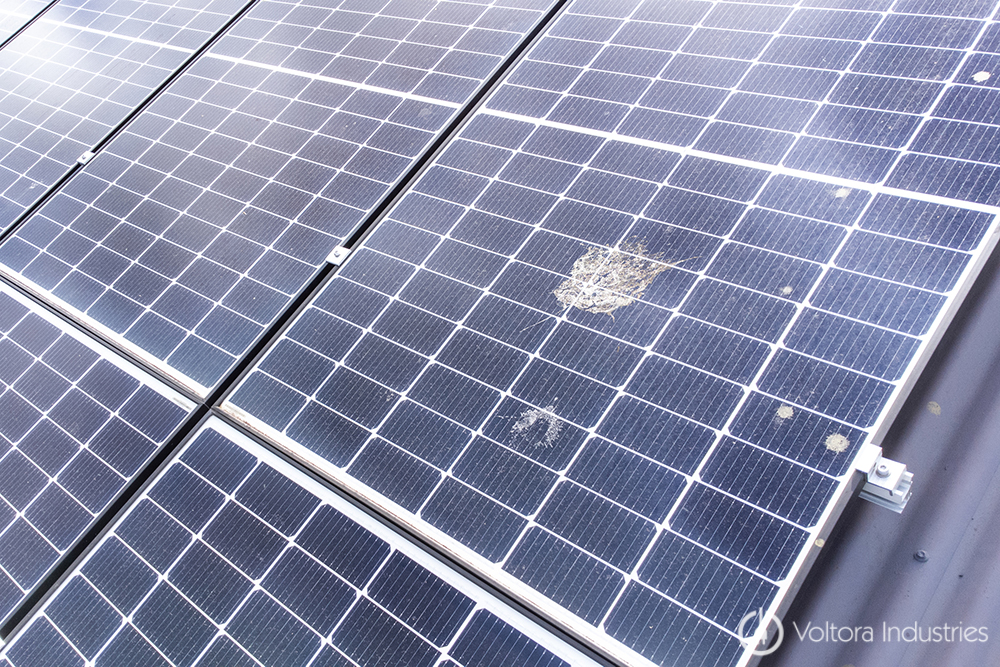 |
What About Battery Storage?
Adding a solar battery to your setup can make a huge difference, especially in winter. While your panels generate power during the day, a battery stores any excess energy so you can use it at night when the sun’s gone down and you’re watching Netflix, cooking dinner, or turning on the heater.
This helps you make the most of your system when daylight hours are limited. With the Cheaper Home Batteries Program launching across Australia, now’s a good time to think about getting batteries for your solar system.
Common Winter Solar Myths Busted!
Let’s take a moment to bust a few of the misconceptions about solar power effectiveness in the winter months:
- “Solar panels don’t work in winter.”
False. They absolutely do. As long as there’s light, they’re producing power. - “You need full sun all day for any solar benefit.”
Not true. Solar panels still work in diffused light, like on cloudy days. The output is lower, sure, but it doesn’t drop to zero. - “There’s no point getting solar if it’s not summer all year round.”
That logic would knock out solar systems in Germany, the UK, or most of New Zealand, yet they’re all thriving solar markets.
Get Solar-Ready with Voltora Industries
You couldn’t ask for a more solar-ready city than Brisbane. Our winters are mild, our skies are mostly clear, and we have long and sunny summer days.
The question is, are you fully leveraging these advantages? You could be seeing significant drops in your energy bills with a solar system installed at your home or workplace, even during the winter months.
Voltora Industries is here to get you solar-ready. We’ve helped hundreds of Queenslanders with solar systems built to last. Why not take advantage of our impeccable climate with a tough, efficient and smart solar system installed by our expert technicians.
Let’s talk today.
Lets get started

